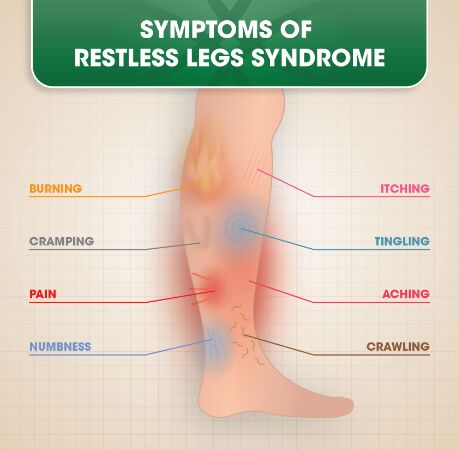Unpleasant sensations
‘Restless leg syndrome’ stealing your night’s sleep? Get it treated, and know the dos and don’ts

I am a 36-year-old mother of one, a part-time working professional. I have an issue that irks me nearly every night. When I retire into bed, I find it hard to sleep because I feel extremely restless the moment I begin to fade off into sleep. It feels as if ants are crawling up and down my feet and the only way to stop that annoying sensation is by shaking and moving my legs. This keeps interrupting my sleep all night. I saw a specialist and I was told I may have Restless Leg Syndrome and am worried sick about it. Is it serious?
Restless Leg Syndrome (RLS) is a neurological condition that leads to an irresistible urge to move legs. It can occur not only when one is sleeping but also when sitting or resting. It typically happens in the evening. This is very different from the voluntary shaking of legs that one can stop at will. That is typically a sign of anxiety and restlessness. What is so interesting about this irresistible urge to move the legs is that the act temporarily eases out sensations that disrupt sleep. The nature of these sensations can range from pins and pricks to creepy and crawly.
Other names: It is also known as Willis-Ekbom Disease.
How common is it?
It affects about 5-15 per cent of the adult population and is more common in middle-aged women. However, RLS can literally occur at any age or stage of life.
Symptoms:
Discomfort in limbs, especially legs, which may be described as creeping, itching, pulling, crawling, tugging, throbbing, burning, or gnawing. Some even report cramps.
Urge to move legs (or arms) in order to get some relief from the above sensations.
Sleep disruption due to the increased time taken to drift off to sleep.
Bedtime problems: There may be issues like wanting to get up and get out of bed or issues with the partner due to the discomfort caused by movements.
Daytime sleepiness: If a person doesn't get adequate rest at
night, it may make them sleepy during the daytime. Some report effect on work, mood and relationships.
Causes:
Idiopathic: Most cases don't have a cause. Many people have a history of a family member affected by RLS.
Secondary: Low haemoglobin (anaemia), hypothyroidism, depression, fibromyalgia, diabetes, peripheral neuropathy, kidney conditions, pregnancy could be some of the reasons.
How does one get diagnosed? Is there a test?
Unfortunately, no single test exists to diagnose RLS. The diagnosis is based upon the symptoms. A 'sleep study' may be suggested to a few clients.
Which specialist to see?
A neurologist, sleep medicine specialist or psychiatrist can help.
Treatment:
Medications: A variety of options exist. The main group of medications are dopamine agonists, benzodiazepines, anti-seizure medications etc.
Do less of:
Avoid caffeine
Avoid nicotine
Avoid alcohol and drugs
Do more of:
Exercise during the daytime
Massages, acupressure
Relaxation and stretching
Hot baths or soaking feet
Take micronutrients like magnesium, selenium, iron
Maintain sleep hygiene
Yoga
Meditation
Send your questions to [email protected]



